Rose breasted cockatoo for sale
$900.00 – $1,500.00Price range: $900.00 through $1,500.00
-
Size: 22–26 inches (56–66 cm) in length
-
Wingspan: Around 36 inches (91 cm)
-
Weight: Approximately 600–900 grams
-
Lifespan: Up to 50 years or more in captivity
-
Temperament: Intelligent, affectionate, social, and sometimes shy
Rose breasted cockatoo for sale
Rose Breasted Cockatoo for sale. Rose Breasted Cockatoos have bright pink feathers on their chests, bellies, and the lower half of their faces. They have pinkish-white crests and gray backs, wings, and tail feathers. They have gray feet and horn colored beaks.
Galahs make wonderful, energetic pets and, when trained with consistency, have a good talking ability. These birds have an affectionate and bubbly personality and are extremely popular as pets. They’re very loving and affectionate birds which form a very strong bond with their owner and like to think of themselves as ‘part of the family’. However, they do like their privacy at times and are quite happy to simply be around the family rather than be handled all hours of the day.
Affectionate and friendly, the rose breasted cockatoo for sale is a loving pet. Unlike moluccan cockatoos, these birds are not big on cuddling. But, they are accustomed to handling it.
Speech and Vocalizations of rose breasted cockatoo for sale
Wild galahs emit loud, high-pitched sounds while flying in flocks. They can make a resonating screech when frightened, excited, or calling out for attention. This clever bird can imitate people’s voices and repetitive sounds like train whistles, car horns, or telephone ringtones. Some say males are more prolific talkers than females.
Comparatively, the galah cockatoo is not particularly loud for a cockatoo, which is among the loudest of parrots. Still, this bird is not recommended for apartment or condo living. It usually has two noisy periods, once upon waking with the sun and at dusk.
Caring for a Galah Cockatoo for sale
Your bird will want to spend a considerable amount of time with you and will be a reasonably high-maintenance pet. If you are short on time for interaction, this bird might be happier housed with another galah.
These parrots need sound sleep in a dark, quiet place that mimics the safety of the roosting areas that they prefer when living in the wild. Covering the bird’s cage at night usually reassures them.
This bird is not a large parrot but still requires plenty of space. At the very least, it needs a 4-foot-square cagen. Rose Breasted Cockatoo’s need lots of attention and can be great pets.
What do you expect from your Cockatoo?
When you bring one home, you expect him to be a “cuddle bug,” have talking ability, be intelligent, sociable, and give you unconditional love and companionship. This is what you want and this is what you can have. You need to treat your Cockatoo the same when you first get him as you would a year from now. They are highly intelligent creatures who can give you much pleasure and fun, but at the same time can be noisy and cause you frustration if not treated properly and spoiled too much. They will love you like no other. Any family members, neighbors, and even strangers will be able to come over and pet the bird. They love that. Larger Cockatoos crave a bit more petting than the smaller ones, but the smaller ones will still take as much as you can give. This is why you will need for the whole family to be able to pet the bird. They bond very strongly to their owner. In my experience, the larger ones are a bit more forgiving when it comes to unfamiliar people. Smaller ones can be a bit skittish if not socialized properly.
Why Buy a Red-Tailed Black Cockatoo?
1. Unmatched Beauty
The glossy black plumage combined with vivid red tail feathers in males makes this bird visually stunning. Females have yellow-orange spots and bars on the chest and tail, offering a more speckled appearance.
2. Strong Bonding Ability
Red-Tailed Black Cockatoos are emotionally intelligent birds that form strong bonds with their human companions. They thrive on interaction and affection, making them excellent companions for committed owners.
3. Highly Intelligent
Like other cockatoos, they are incredibly smart and capable of learning tricks, mimicking sounds, and problem-solving. Their curious nature makes enrichment and mental stimulation essential.
4. Rare and Exotic
Owning a Red-Tailed Black Cockatoo is a privilege due to their rarity in the pet trade. Reputable breeders follow ethical practices to ensure these birds are raised in healthy, social environments.
Things to Consider Before You Buy
-
High-quality feed
-
Spacious aviary or cage
-
Veterinary care (avian specialists)
-
Toys and enrichment
-
Grooming and training
Time Commitment
These birds need daily attention, social interaction, and environmental enrichment. They’re not suited for people with busy lifestyles who cannot provide consistent care.
What to Look for in a Red-Tailed Black Cockatoo for Sale
If you’re looking for a healthy and well-socialized cockatoo, here are key things to look for:
-
Licensed Breeder or Aviary: Only buy from a certified, ethical breeder with a reputation for hand-rearing and socializing birds.
-
Health Certificate: Ensure the bird is checked by an avian vet and free of diseases.
-
Behavioral Traits: Look for a bird that’s curious, alert, and interactive. Avoid birds showing signs of lethargy, plucking, or aggression.
-
Diet and Habits: Ask about the bird’s current diet and routine to ensure a smooth transition to your home.
Caring for a Red-Tailed Black Cockatoo
Housing
These cockatoos need a large, secure enclosure (minimum 6ft x 6ft x 6ft), preferably an outdoor aviary with shelter. The cage must be made of strong metal due to their powerful beaks.
Diet
A balanced diet is crucial. Provide:
-
Pelleted parrot food
-
Fresh fruits and vegetables (apples, carrots, leafy greens)
-
Sprouted seeds and nuts (in moderation)
-
Fresh water daily
Avoid avocado, chocolate, caffeine, and alcohol — all toxic to birds.
Socialization and Mental Stimulation
Without regular mental stimulation, cockatoos can become bored and develop behavioral issues like feather plucking or screaming. Offer:
-
Daily out-of-cage time
-
Puzzle toys
-
Foraging opportunities
-
Vocal interaction or training sessions
Common Health Issues
Red-Tailed Black Cockatoos are generally hardy, but common issues include:
-
Psittacine Beak and Feather Disease (PBFD)
-
Respiratory infections
-
Feather-plucking (due to stress or boredom)
-
Nutritional deficiencies
Schedule regular check-ups with an avian vet and maintain a clean, safe environment.
| Age | 6 to 12months, 1 to 3years |
|---|---|
| Sex | Male, Female |
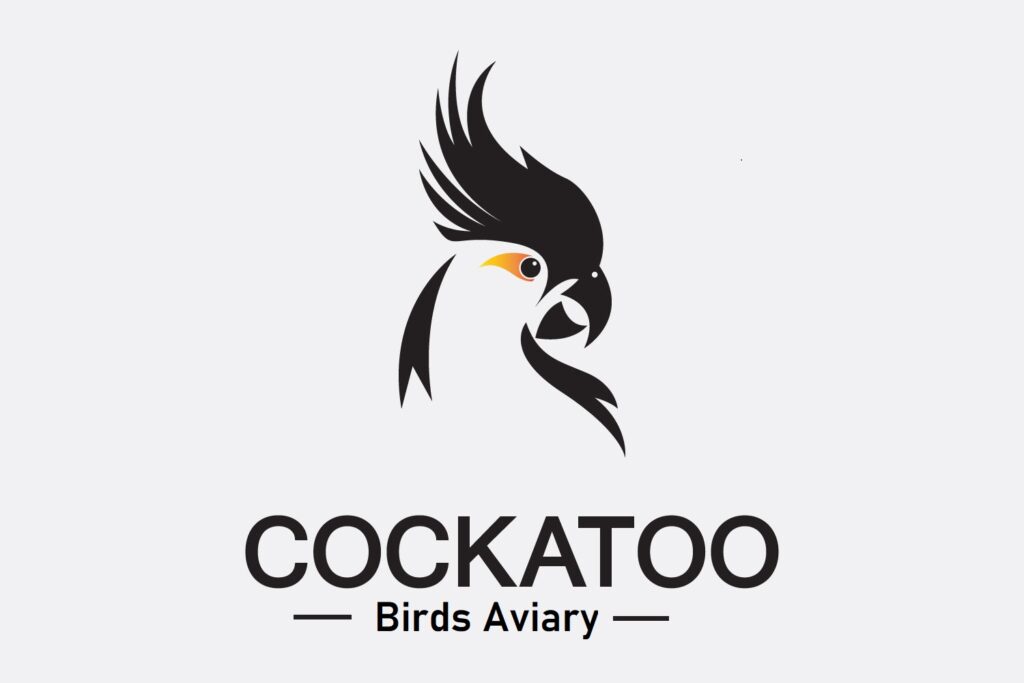

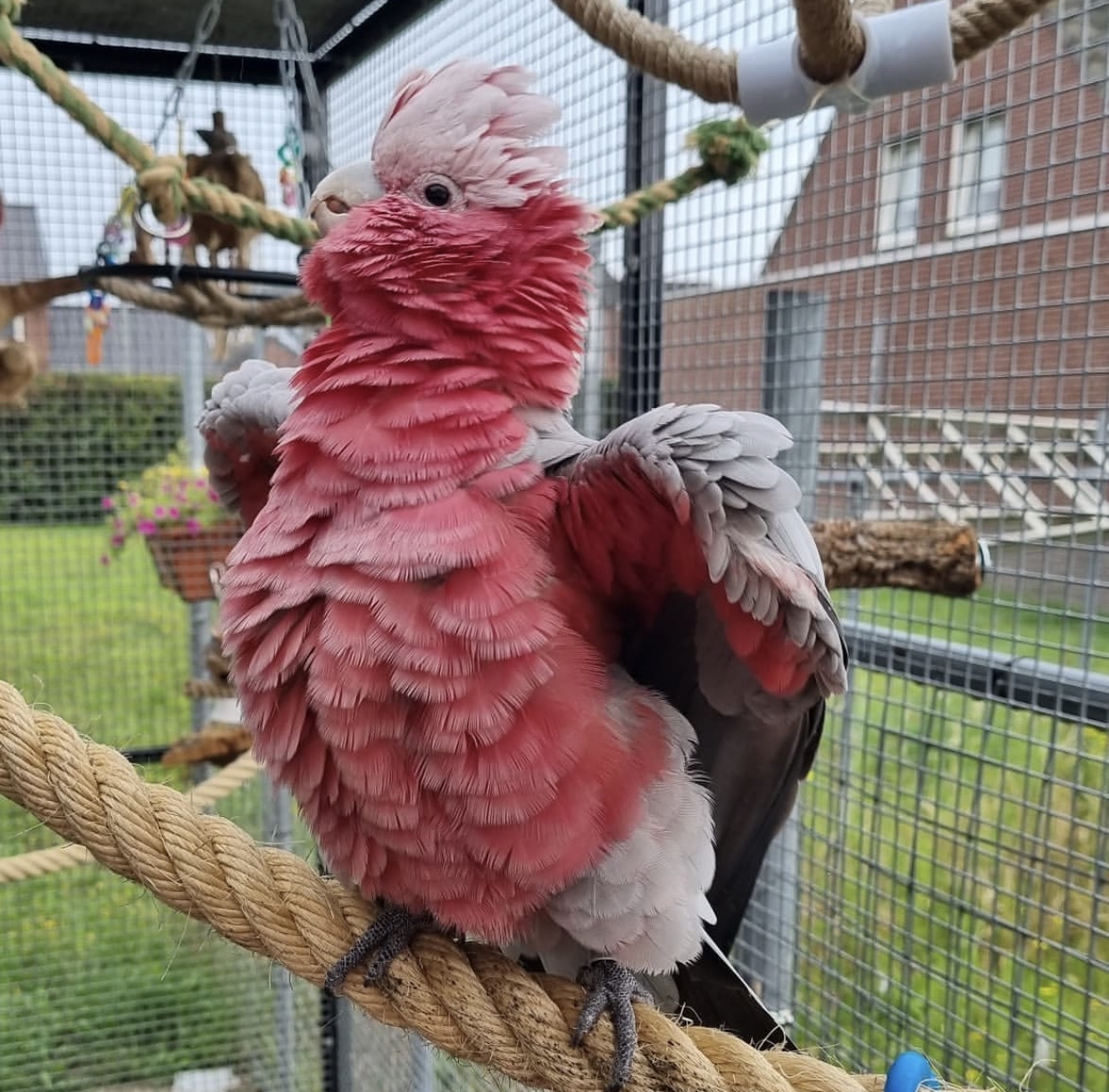
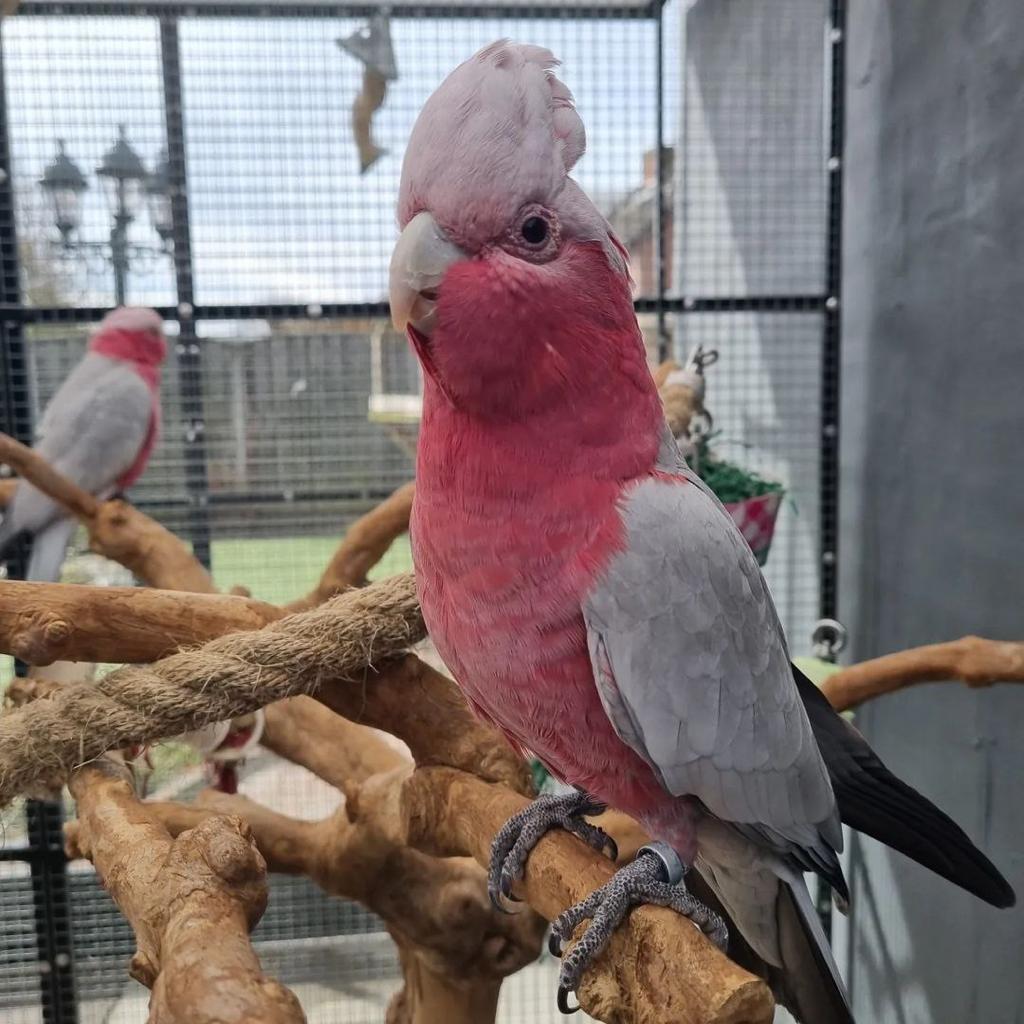
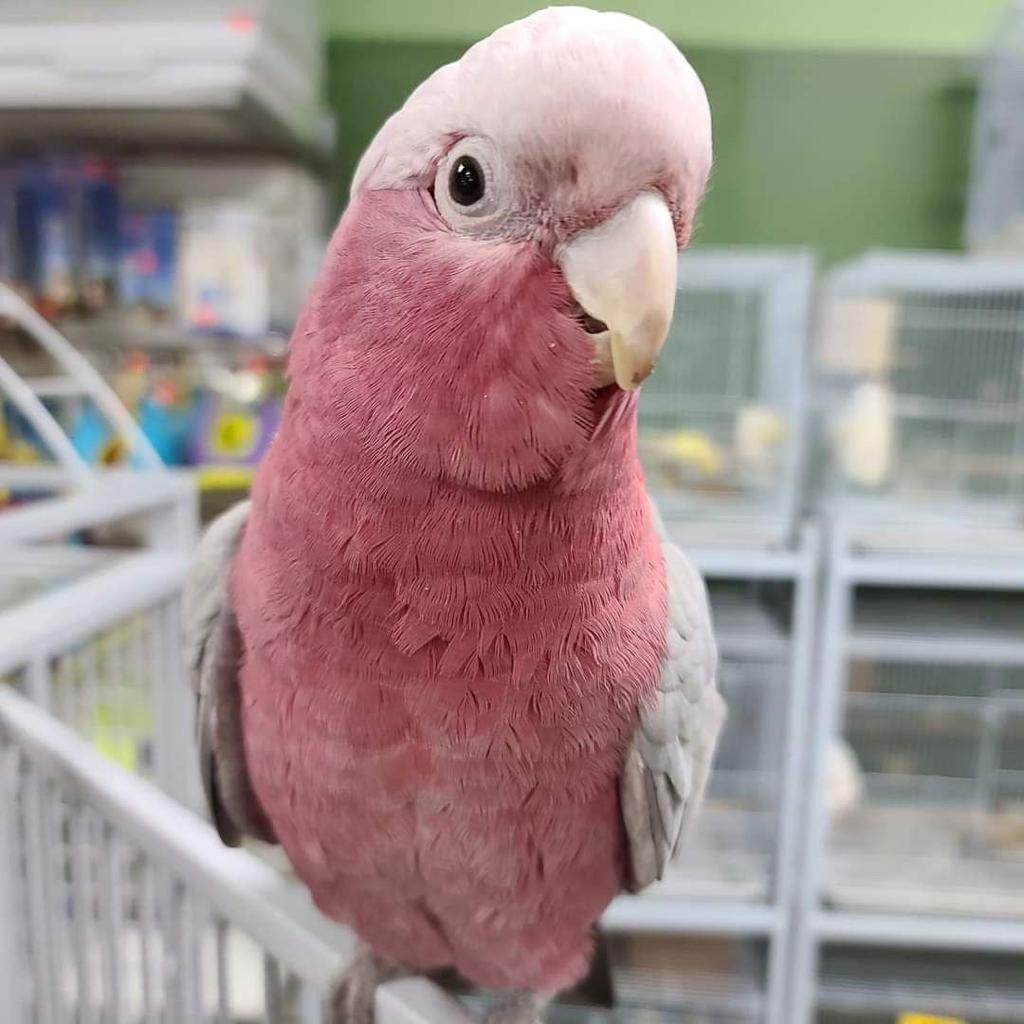
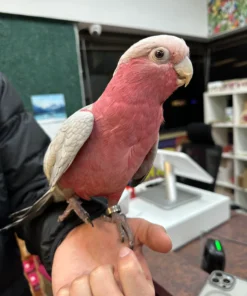
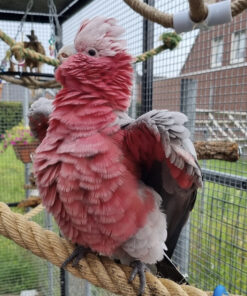
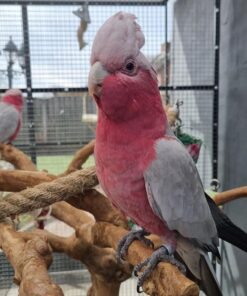
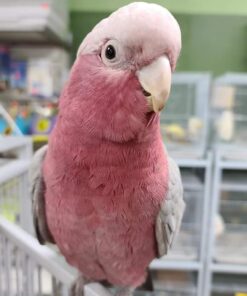
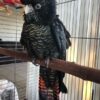
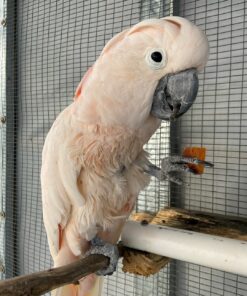
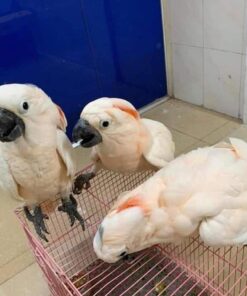
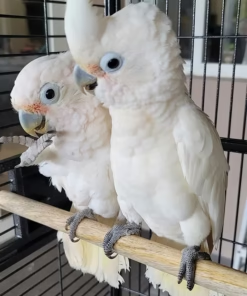
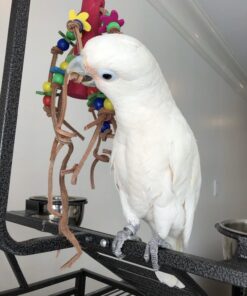
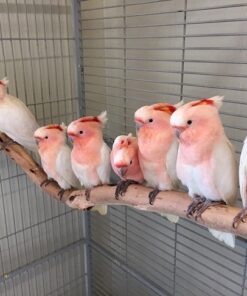
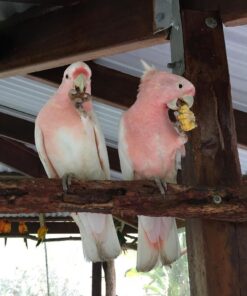
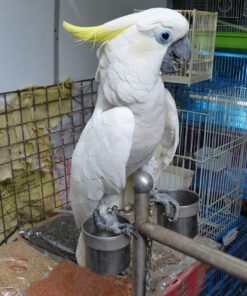
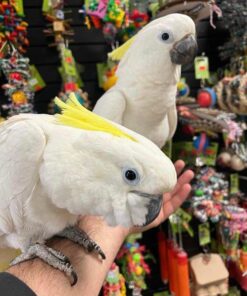
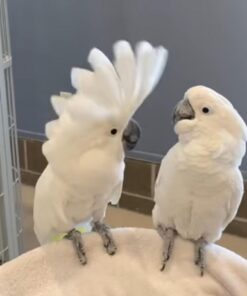
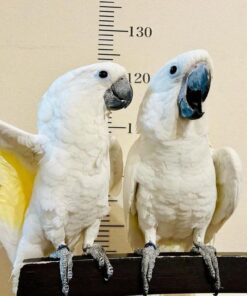
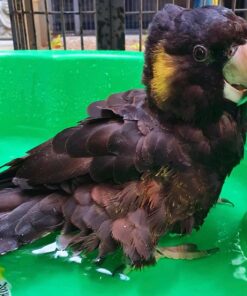
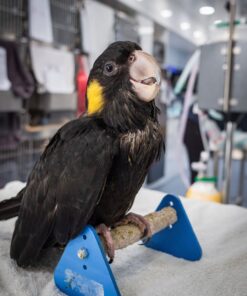
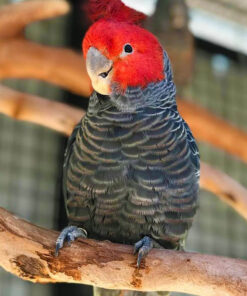
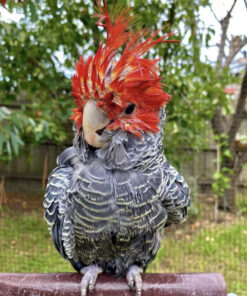
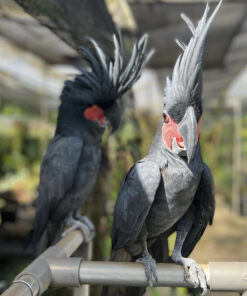
Reviews
There are no reviews yet.